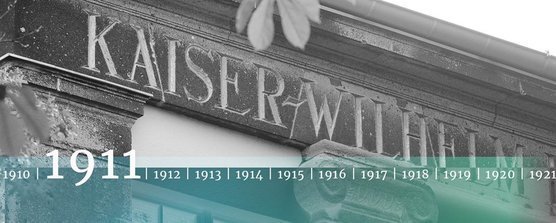In 1914, Max Planck persuaded Albert Einstein to come to Berlin by offering the young physicist attractive conditions. Planck was thus one of the first people to recognise the importance of the theory of relativity to modern physics. Einstein was one of the few scientists with political weight. In 1917, he became the first Director at the KWI for Physics, which initially existed only on paper, and was actually located in the attic of Einstein’s apartment in the Schöneberg district of Berlin. Five years later, Albert Einstein received the Nobel Prize for Physics. Owing to death threats, the renowned physicist had to leave Germany temporarily in October 1922; Max von Laue took over as Director. Einstein used the opportunity to take up a position as a visiting professor at Princeton University in New Jersey. On 10 March 1933 he informed the media: “As long as I have any choice in the matter, I shall live only in a country where civil liberty, tolerance and equality of all citizens before the law prevail.” Two weeks later, he resigned his position in the Academy due to the “present circumstances in Germany” and renounced his German citizenship. He also terminated his membership in the Kaiser Wilhelm Society and finally emigrated to the United States in October 1933. Following the war, he refused all official contact to Germany and informed the Max Planck Society, established in 1948, that he was turning down the nomination to become an External Scientific Member.

